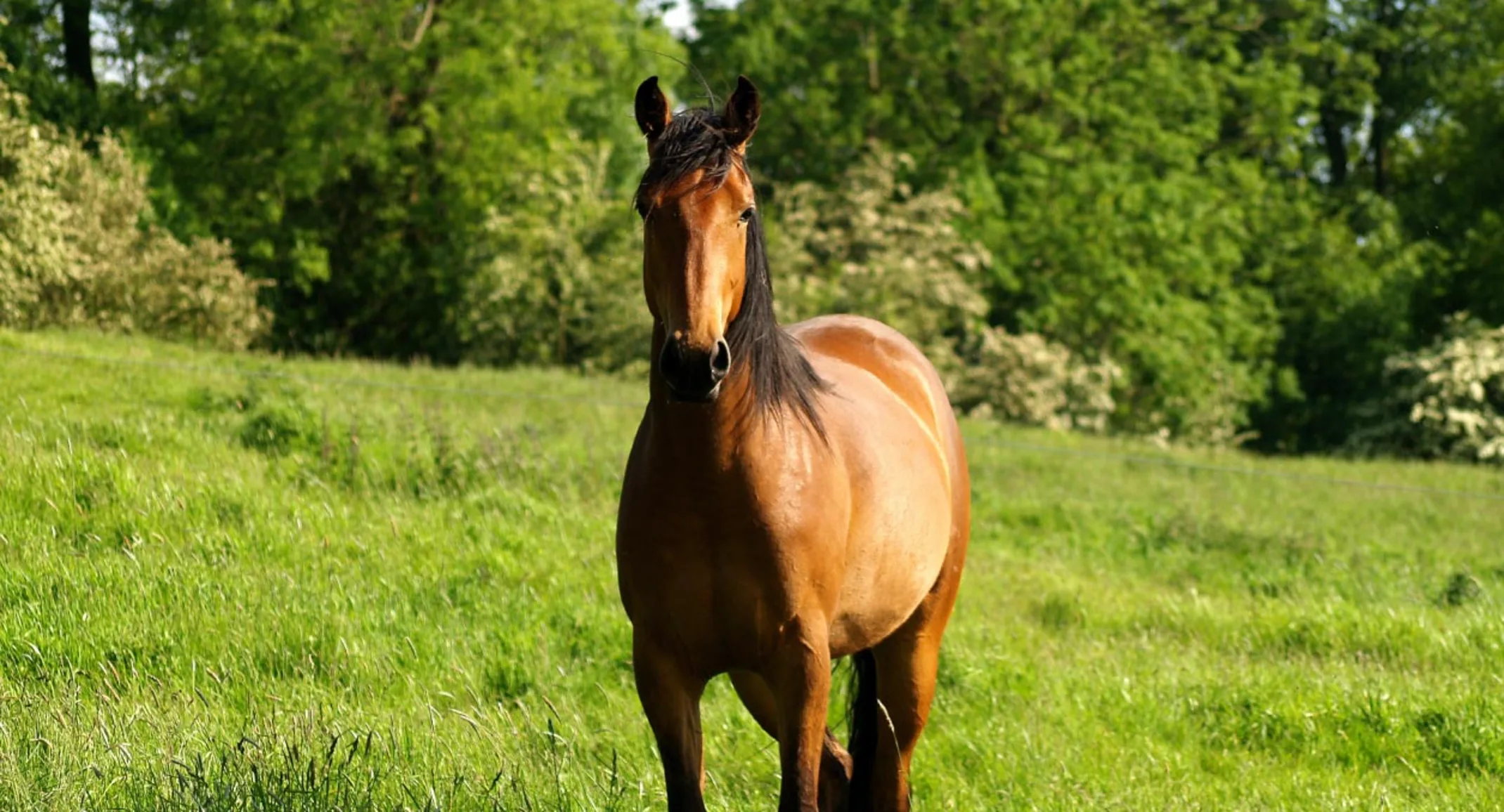West Nile Disease
Equine Resources

Horses vaccinated against Eastern, Western or Venezuelan equine encephalomyelitis are not protected against WNV. In February 2003, a vaccine was licensed by the USDA’s Center for Veterinary Biologics for use in healthy horses. The vaccine has been used extensively to prevent WNV infections in horses.
Aside from vaccination against WNV, other measures should be taken to reduce the risk of your horse being bitten by a virus-infected mosquito. Concerted efforts should be made to eliminate or reduce potential mosquito breeding sites by disposing of old receptacles, tires and containers and eliminating areas of standing water on farms or wherever horses congregate.
Clean clogged roof gutters and turn over plastic wading pools or wheelbarrows when not in use. Thoroughly clean livestock watering troughs at least monthly. Keep horses indoors during peak mosquito activity periods (dusk to dawn). Screen stalls (if possible) or at least install fans over the horses to help deter mosquitoes. Avoid turning on lights inside the stable during the evening or overnight. Because mosquitoes are attracted to light, placing incandescent bulbs around the perimeter of the stable will attract mosquitoes away from the horses. Lights can also be used to draw mosquitoes to electric bug zappers.
The use of insect repellant that contain pyrethrin on horses can also reduce the chance of being bitten by mosquitoes. Remove any birds (including chickens) located in or close to a stable. Because WNV can affect humans as well as horses, don’t forget to take actions to protect yourself as well. When outdoors in the evening, wear clothing that covers your skin and apply plenty of mosquito repellent.
Signs of West Nile Virus
These symptoms can be confused with rabies, EPM ("Possum Disease), equine encephalitis, and other serious neurological diseases. If you see these signs in your horse, see your veterinarian immediately.
Stumbling or tripping
Muscle weakness or twitching
Partial paralysis
Loss of appetite
Depression or lethargy
Head pressing or tilt
Impaired vision
Wandering or circling
Inability to swallow
Inability to stand up
Fever
Convulsions
Coma
Death
West Nile Vaccination Protocol
Dr. Rob King, head of the Fort Dodge West Nile Program, recommends the following vaccination schedule:
Adult horses should be vaccinated twice this year - early spring and early fall. If the horse has never been vaccinated for West Nile Virus, he should receive two boosters four weeks apart in March and then one booster in August.
Pregnant broodmares are the exception. They should have all yearly vaccinations (including West Nile) 30 days before anticipated foaling date.
Foals - consult your veterinarian for proper vaccination protocol.
How do Horses get West Nile Virus?
The cycle starts with infected birds, which can travel long distances in a short amount of time . When a mosquito bites a bird carrying the West Nile virus, it too becomes infected. The mosquito then feeds on a horse, human or other mammal. Once a horse has been bitten, it may take only 5 to 15 days for signs of West Nile virus to appear.
Treatment: There is no specific treatment for West Nile virus. Your veterinarian may be able to provide supportive therapy that can save your horses life. However, in addition to good mosquito control, there is now a vaccine that may aid in the prevention of disease caused by West Nile virus.
Mosquito Control Tips:
Keep horses stabled during dawn and dusk, when mosquitoes are most active
Turn off lights that attract mosquitoes at night
Use fluorescent lights, which do not attract mosquitoes
Keep screens in stable windows
Eliminate common mosquito breeding areas like shallow stagnant water and puddles
Empty water collecting in buckets, tarps or tires
Clean water troughs once a week
Use mosquito repellent
